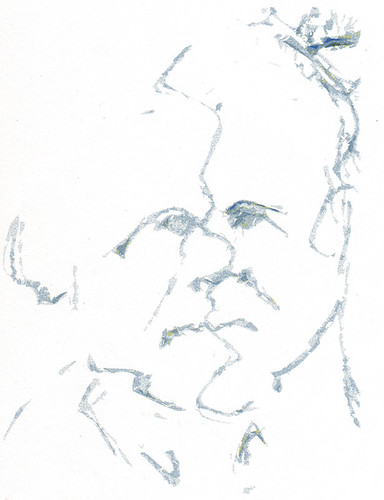Let’s think about this for a minute.
Certainly,
Rev. Williamson is defending his home turf, and that is an honorable position, but it seems to me he has missed his own point when he claims that Rev. John Shuck of Elizabethton, Tenn., and other certainly challenging ministers brought up in the letters, are guilty of hypocrisy.
Indeed, the claim that the five unbelieving ministers are “living a lie,” and are hypocritical might be true, though we would need more information than is available in Rev. Williamson’s article. But even so, the branding of hypocrite here seems to miss the biggest mark. But perhaps I am wrong, as I’ve not been to seminary, but only listened to those who have.
My understanding is that the typical seminary curriculum is quite open about the state of Biblical scholarship which has developed over the last 100 years. This scholarship shows how the Christian texts, back through the old Hebrew books, are historical constructions, written, edited, rewritten, redacted, etc, by humans in response to their real, lived circumstances over many hundreds of years. The origin of the words is not at all clear, though the fact that the characters in the Bible most likely did not say them as written is quite well established. Even many of the characters and events themselves are fictional reconstructions at best. The fellows of the Jesus Seminar, among others, make the point quite strongly that this knowledge, which most ministers are given, is kept quietly away from their congregations, who are deemed unable to accept it. And so, they instead repeat the stories as if their flock were children. Not only is that hypocritical, it is condescending.
As for the legalistic claims, heresy and apostasy, I say, perhaps to the first, but certainly not to the second. My dictionary defines apostasy as the abandonment of one’s own religion, especially for reasons deemed low. It seems to me that Rev. Shuck is abandoning Rev. Williamson’s religion. That’s a different act altogether.
I have heard Rev. Shuck deliver a sermon on many occasions. I think many churchgoers, having been kept ignorant as children from the understanding that the ministers themselves were offered in their education, would find them outrageous. That is not Rev. Shuck's fault, nor his congregation’s, who respect him a great deal. It is the fault of the frankly hypocritical posturing of the swarms of ministers who do not allow those who listen to them to come to terms with the world as it is now known.
If the stories of the Bible show anything, it is that the religion described within it evolved over time. It needs to again, I think. Leaving the old behind at this point is not a low action. I think it is what good people need to do. The five ministers Rev. Williamson decries may not be as brave or as fortunate as Rev. Shuck, but we should at least allow that they are swimming in a sea of hypocrites. They and many others are doing what they feel able to do in nibbling away at the simple stories that block a more mature understanding of what Christianity is all about.
- Originally posted as a response, published April 28, 2010, to a letter by Rev. Williamson in The Layman Online, a publication of the Presbyterian Lay Committee.
